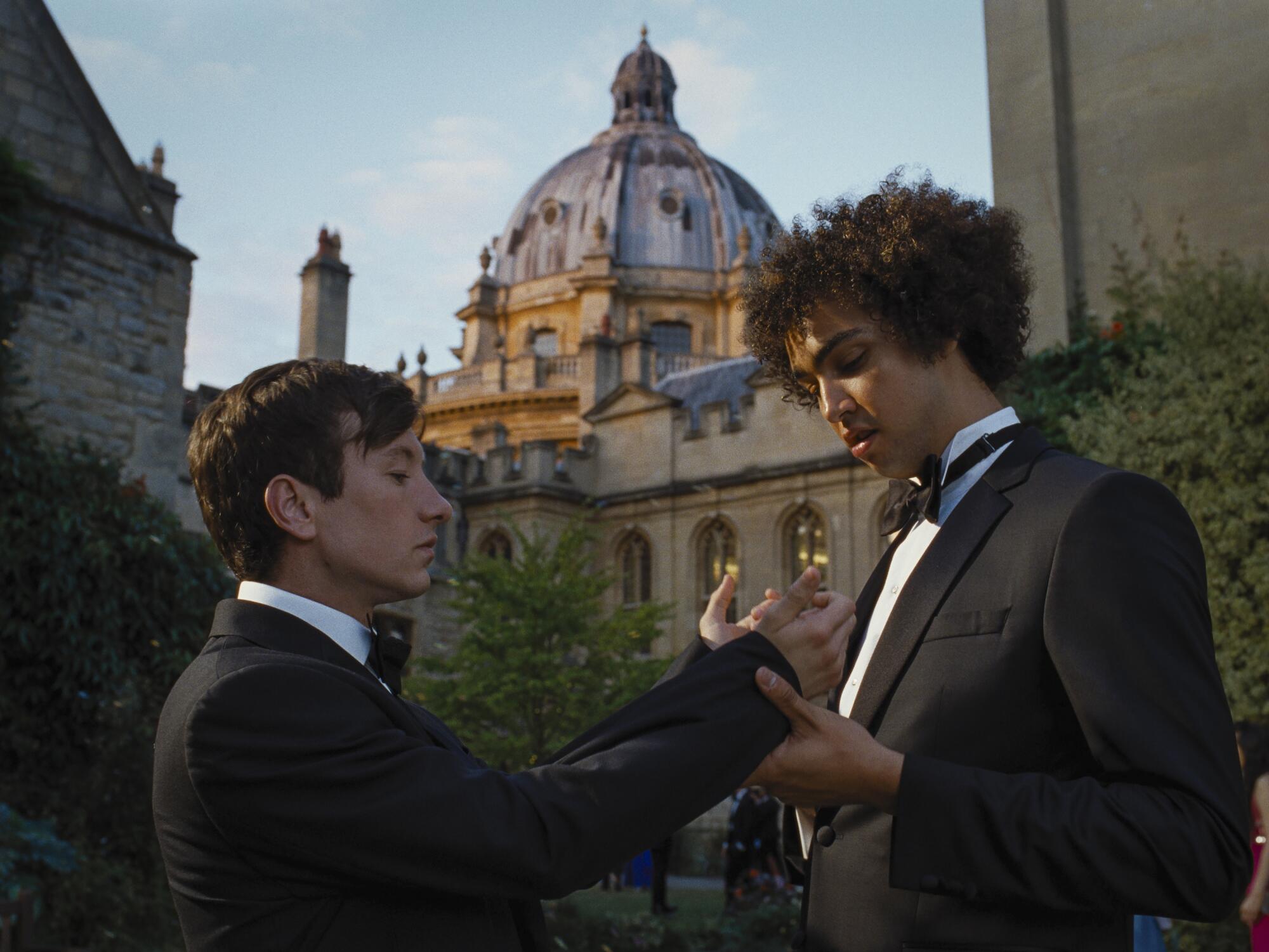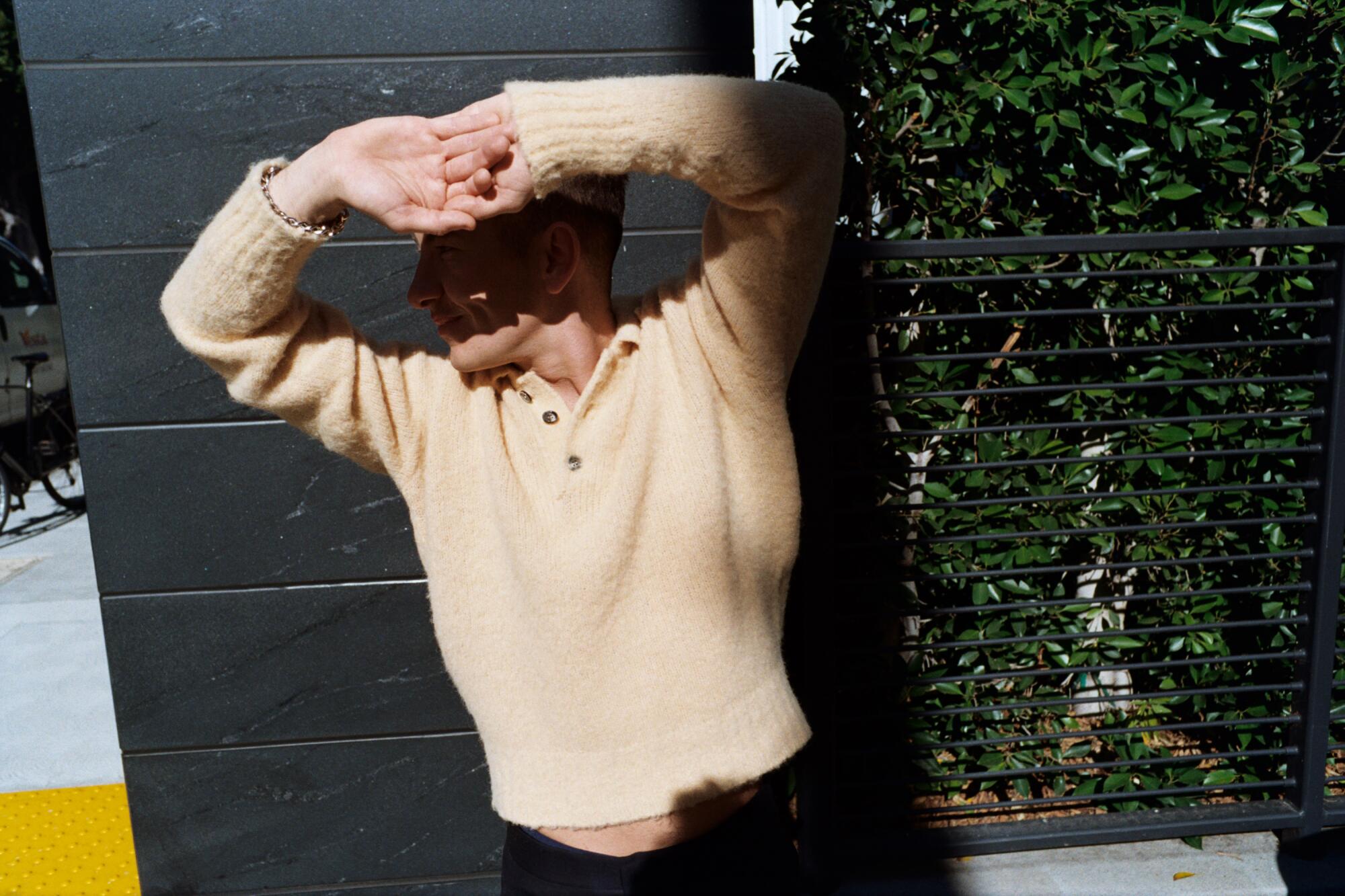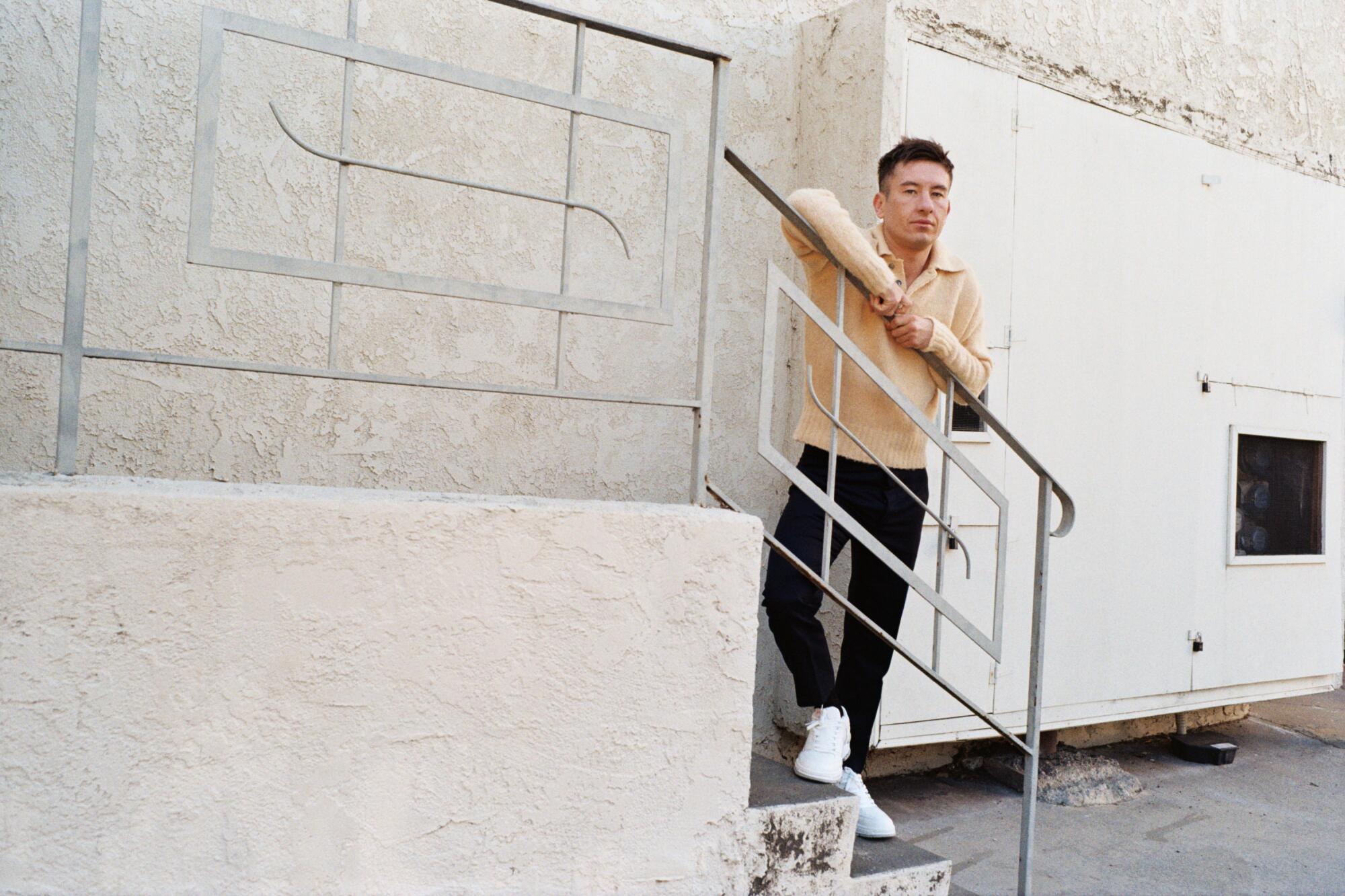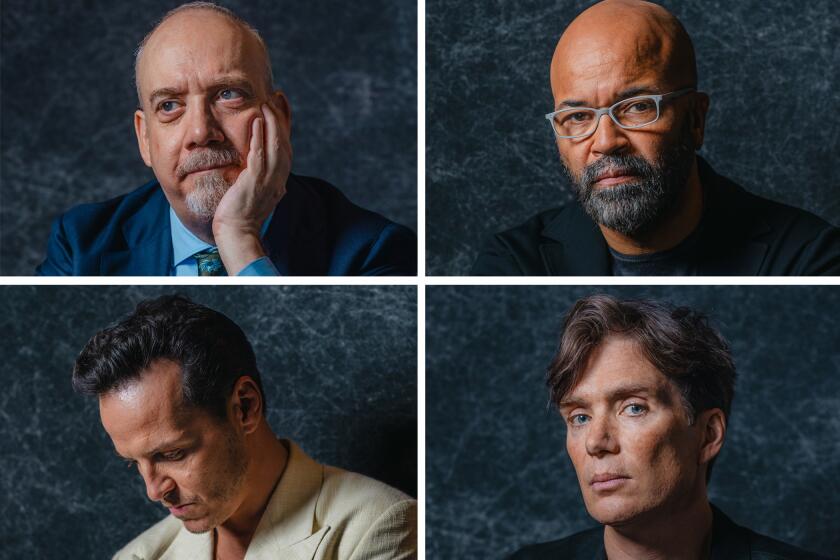
He was the shy young man, a little slow, who had suffered horrific abuse in “The Banshees of Inisherin.” He was the coolly confident extraterrestrial with a penchant for mind control in “Eternals.” And he was the embodiment of the laughing death as the latest Joker in “The Batman.” And that’s just his last three films.
So it shouldn’t surprise that in “Saltburn,” Barry Keoghan is something completely different. Yet somehow it does, and that’s by design.
“Those are conscious choices I’m making, because I want my CV to have a massive amount of range,” Keoghan says. “I don’t want to be stereotyped into playing roles of certain demeanors.” It’s a reasonable concern, considering the impression he has made in some of those roles — particularly his Oscar-nominated turn in “Banshees,” so convincing was he as that benign, damaged soul.
“That’s what I want to do — have parts that are so far apart and so different in their little worlds. It tests me as an actor and shows my commitment to the craft.”
Our BuzzMeter film experts are back to predict what Oscar voters will nominate in 10 Academy Awards categories. Vote in the online polls!
His role in “Saltburn” puts that to the test. On the surface, his Oliver Quick seems the most “normal” of any of his recent parts. But not only is it unlike anything Keoghan has done on-screen before (and, one fervently hopes, off-screen as well), but the role turns out to require many different personas.
Writer-director Emerald Fennell‘s film is a brutal class satire (think “Brideshead Revisited” meets “The Talented Mr. Ripley” with scenes calculated to elicit gasps) populated by people she intended to be unlikable on the surface but who are nevertheless human beneath brittle veneers. Oliver is out of place among his old-money Oxford classmates with his wrong-side-of-the-tracks biography (Keoghan is 31 but easily passes for college-age). He is befriended by the most golden of boys, Felix Catton (Jacob Elordi), who invites him to his family’s storied country manor, Saltburn, for what becomes a summer of sexually charged mind games. Along the way, we see some unexpected sides of Oliver. And in their fullness. More on that later.
“I had a notebook for each Oliver,” says Keoghan, citing the five different books he kept. “Oliver 1 had to be the starting Oliver, and his demeanor is different to Oliver 3. I wanted to create that arc and tap into when ... let’s say it’s Scene 78; I’d look at the notebook: ‘OK, that’s Oliver 4.’ His morals, his demeanor, his physicality. I wanted it to constantly be different and moving and accelerating at different times and beats.”
A generous way to describe Oliver’s changing personae would be “code switching”; less-forgiving nomenclature might also be accurate. From humble waif to sexually rapacious adventurer and more, he sometimes takes extreme action.

Keoghan’s reaction to reading those outré moments: “ ‘How can I step it up a notch in his obsessive world?’ The bathtub, for instance ...” he says of what will surely be one of the film’s most talked-about scenes, “I think it’s a sacrifice, almost. You see how he lowers himself. It’s very submissive. For me, it’s trying to discover, ‘What is he obsessing about?’ ‘How can I become one with ...’ He’s addicted and confused.”
As Keoghan got to know him better and better, his improvisations revealed more and more. When Oliver visits a grave, the script has him doing something objectively strange; what Keoghan ended up doing went beyond even that (both actions would be a spoiler to specify here).
“ ‘I don’t know, I need to get more,’” Keoghan says of his body reacting in the moment. “It’s quite sad when you look at it. He’s broken, he’s lost. He’s in love, or is he? Is he in love with the idea of being in love, or is it with [the trappings] now? It’s confusion.”
Still, there were demands even he found ... altogether daunting.

“The dancing and the singing,” he says without hesitation. “The karaoke scene, it’s not my thing.” Oh, yeah, and he had to dance around the entire country house stark naked, so there’s that.
“The dance scene was initially a walk-through-the-house-naked scene, and that didn’t faze me. I wasn’t like, ‘Oh, my God, I get naked.’ But when it became the dancing bit ... ‘We might have a problem with that.’ They were like, ‘Why?’ ‘I can’t move my hips like that.’ ”
Fortunately, the production secured the services of movement coach and choreographer Polly Bennett.
“She’s f—ing fantastic,” says Keoghan. “She worked with Austin [Butler] for ‘Elvis,’ and she’s marvelous. We worked closely to get to a place where I looked like I was so comfortable within this beautiful, intimidating house and I could roam free. It’s beautiful.
“We all do it. We’re all naked, dancing around, silly, on our own, singing out loud when nobody’s there, and I felt, ‘This is why this is going to relate with a lot of people.’ We all do that. I know I do.”
But hopefully not for the same reasons Oliver ... what, Oliver 5? ... does.

More to Read
From the Oscars to the Emmys.
Get the Envelope newsletter for exclusive awards season coverage, behind-the-scenes stories from the Envelope podcast and columnist Glenn Whipp’s must-read analysis.
You may occasionally receive promotional content from the Los Angeles Times.












